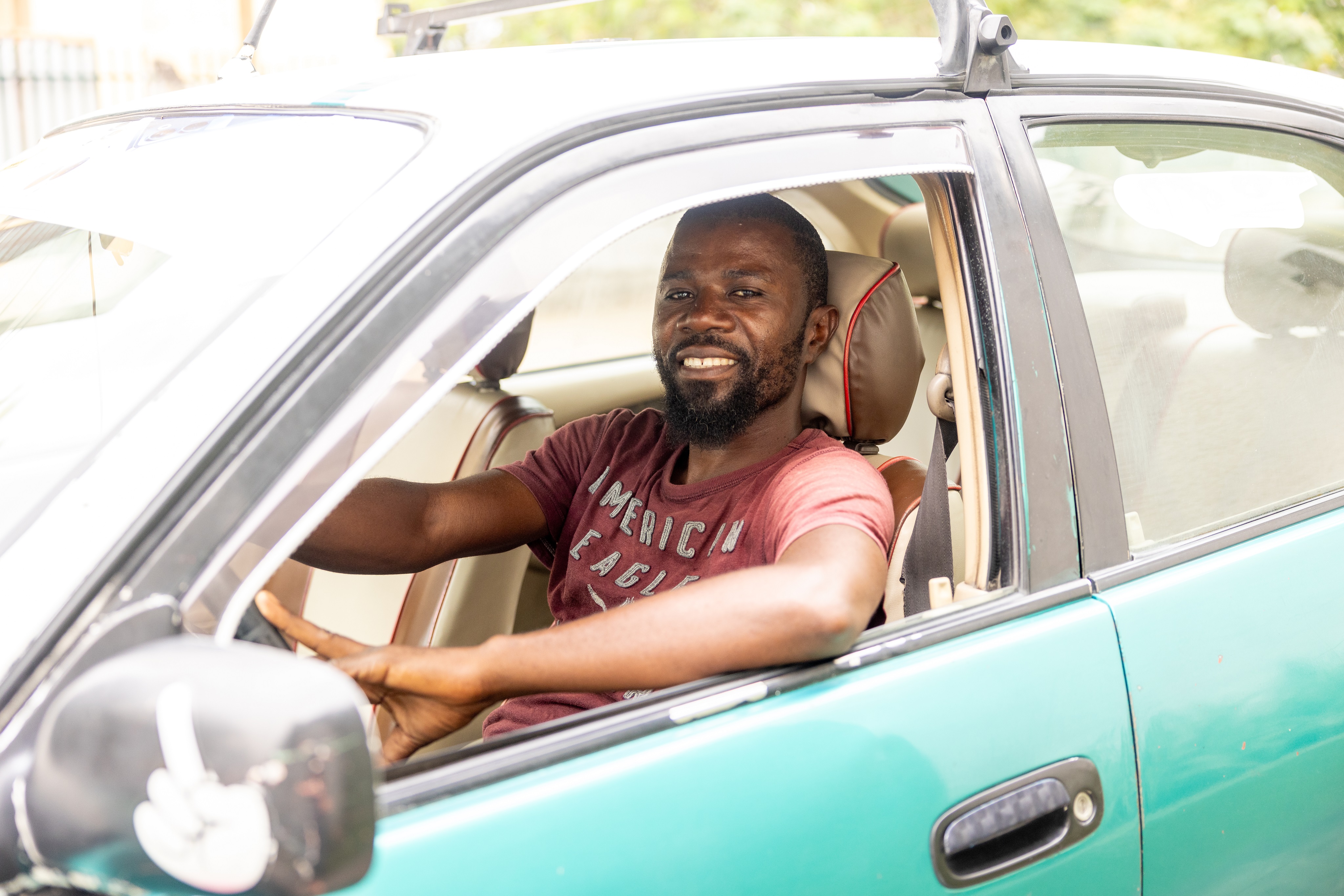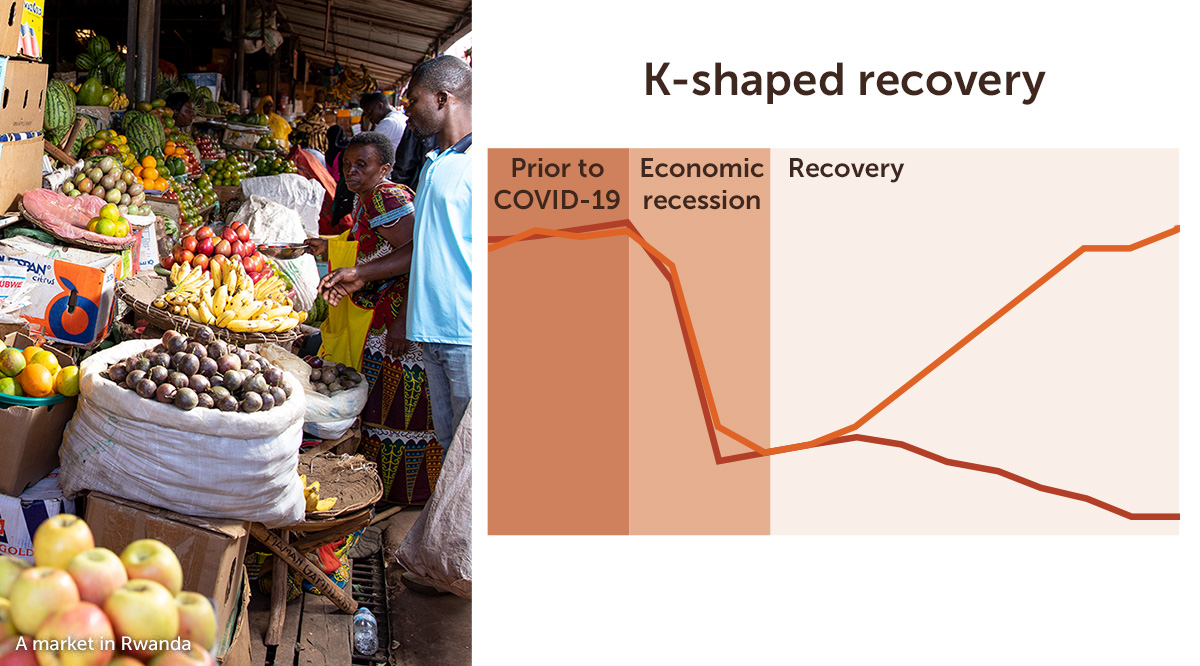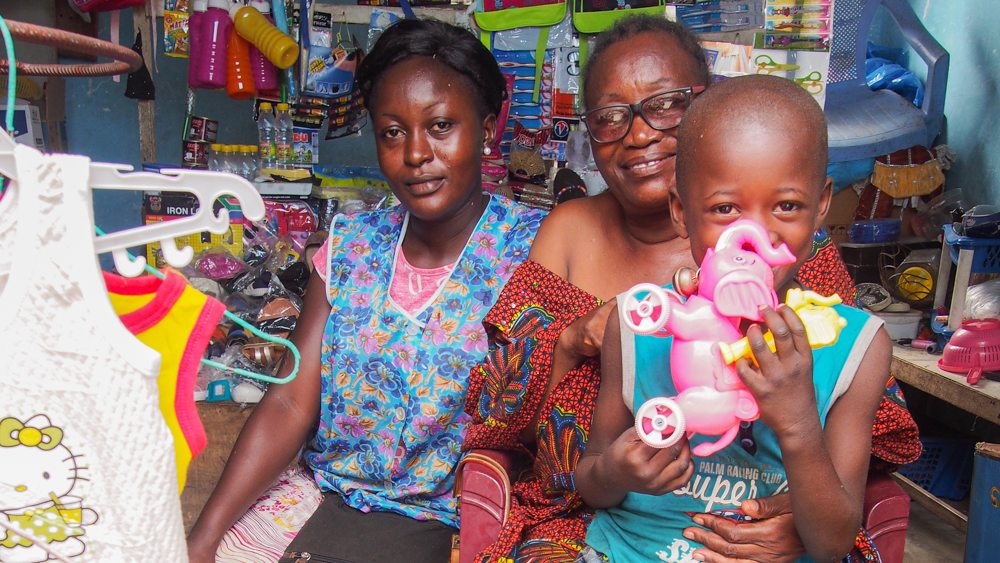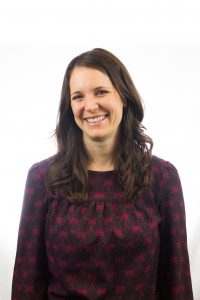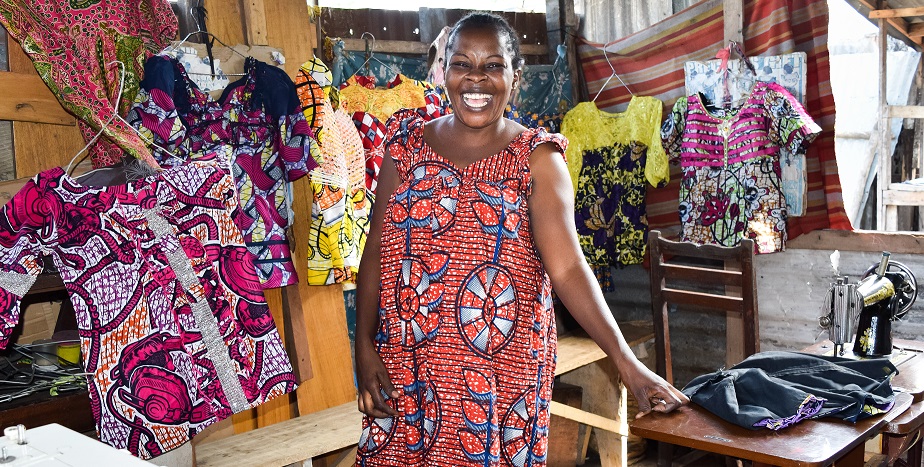At 17 years old in the Republic of Congo, Francoise Koudziomina found herself in a predicament: After discovering she was pregnant, her relationship fell apart, leaving her as a single mother and forcing her to drop out of school.
Just two years later, Francoise’s mother died, leaving her as the caretaker for her younger brother, who was the same age as her son. As 19-year-old Francoise scrambled to provide for two toddlers, she made herself a promise: One day, she’d provide for other young, single mothers in situations like hers.
From a young age, Francoise had loved to knit, and in 1997, she opened a business selling clothing for babies and toddlers. With her natural skill, Francoise worked tenaciously to provide for her brother and son. While Francoise was always able to make ends meet, she lived in a state of constant stress about making enough money to meet their needs.
After taking out a loan with a large microfinance institution to invest in her business, Francoise realized that she required more than just financial backing. To really move her business forward, she needed additional training in finance and business practices. Continue Reading…






